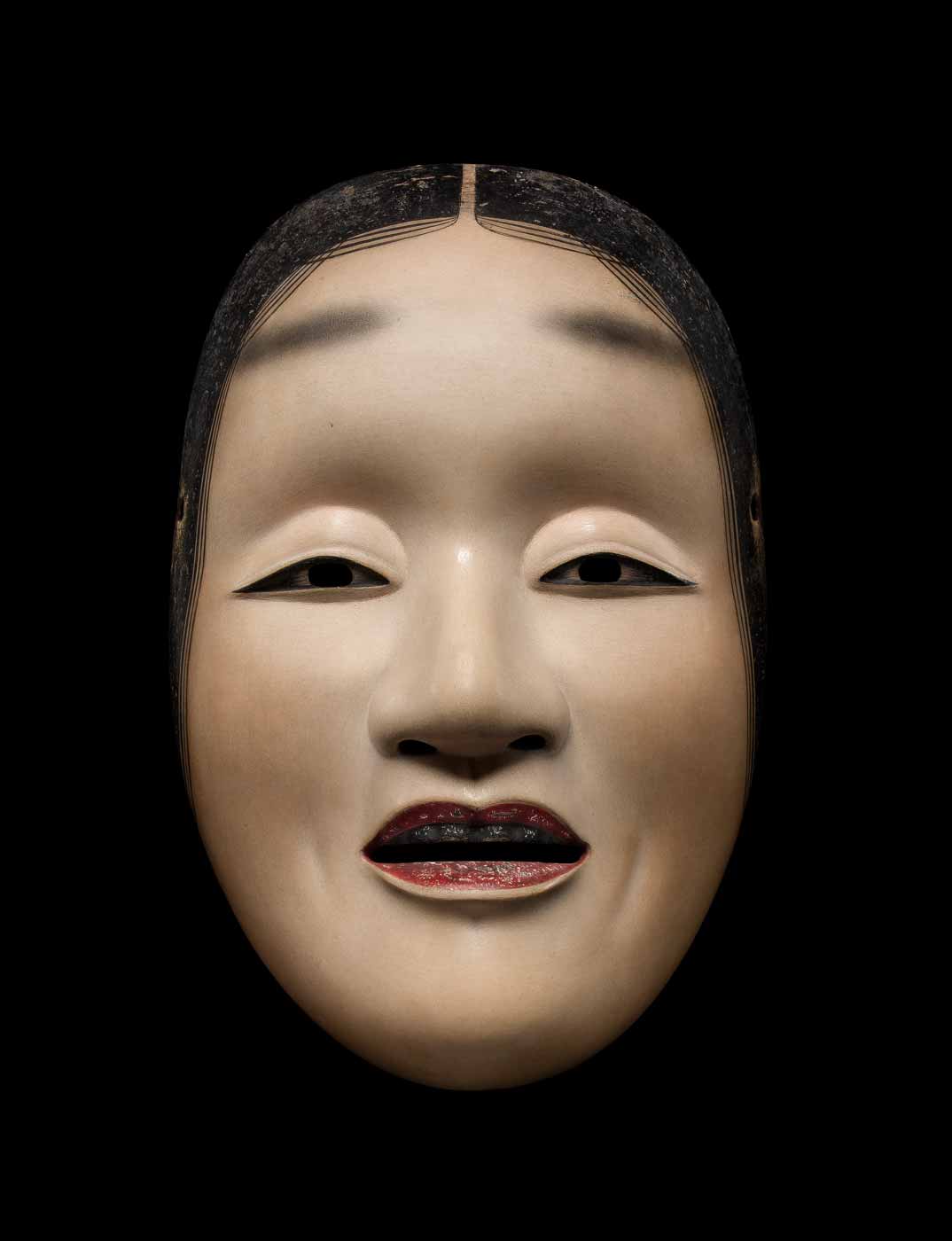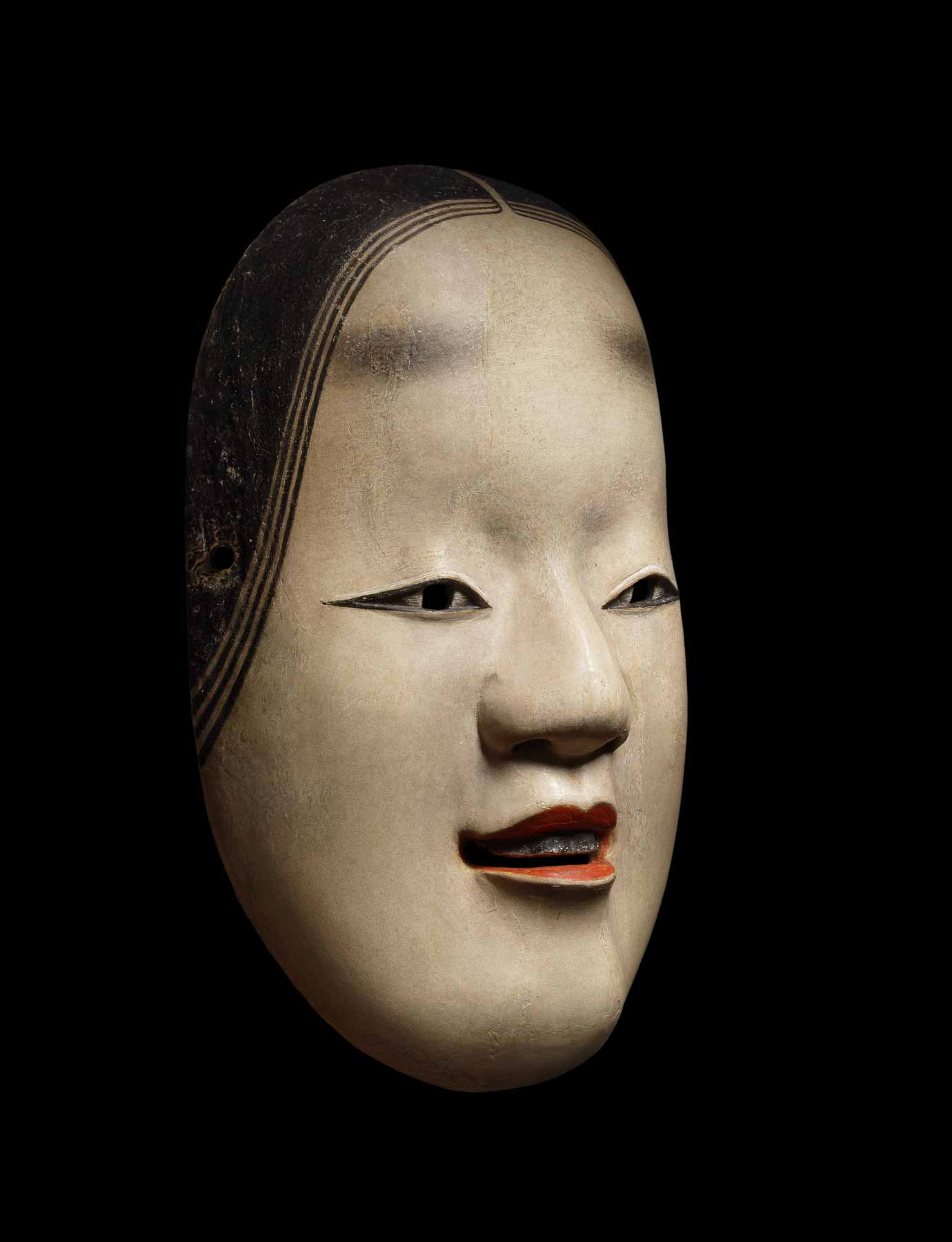Fukai
Mask
- Contact Us
-
Material
Wood, gesso, polychrome pigments
-
Period
Edo period, 18th Century
Description
Noh mask of Fukai named Tsunefuka
Attributed to Hokan Deme Mitsunao
Provenance: formerly belonging to the Bizen Ikeda daimyō family
Fukai (lit. "deep feeling" or "deep well") expresses the depth of mind gained from going through life's trials, or the depth of facial expressions created by deep sadness. This mask is worn with dark colored costumes such as brown, indigo blue or yellow green. It represents the face of a middle-aged woman (between 30 and 40 years old) who has a lot of experience.
Her expression symbolizes maternal love, rendered by the accentuation of the depth of the eyes, the drooping cheeks with marked corners, the mouth empty like the eyes, all imbued with dignity. These features give the impression of a woman lost in thought and express great sorrow. This mask is often reserved for the roles of mothers in difficulty or women tested by life or for the role of a mother who has lost her child, or torn apart by a separation.
It is mainly used for Sumida-gawa's distraught mother who comes from Kyoto to Tokyo in search of her son, who had been kidnapped by slave traders. It is also used for plays such as Miidera, Sakuragawa and Hyakuman but Sumida-gawa is the only one where the mother finds her dead child.


